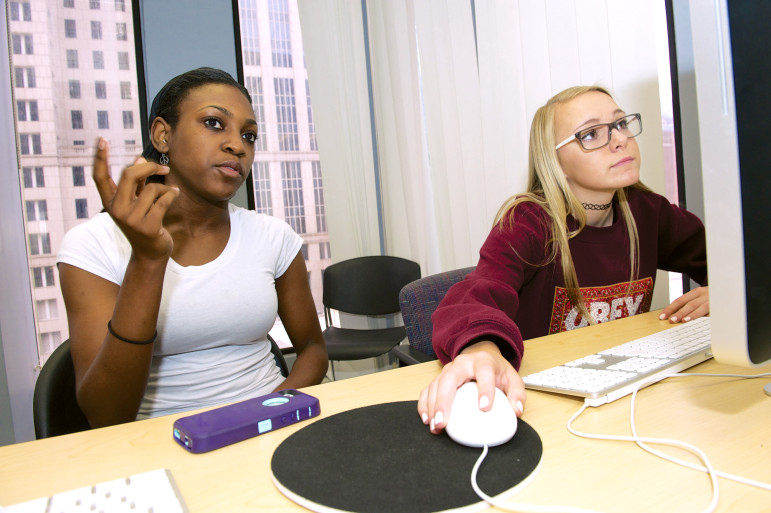
John Glenn
.
WASHINGTON — Out-of-school-time programs could take on more of a role in career and technical education under legislation passed by the House on Tuesday.
The Strengthening Career and Technical Education for the 21st Century Act would allow OST programs to receive federal funding for CTE programming, a change that recognizes students learn skills in after-school and summer programs as well as in the traditional classroom, say supporters.
The legislation also would allow funding eligibility for students as young as fifth graders, rather than seventh graders. The additional time means students have greater exposure to possible careers and time to plan for them, said Erik Peterson, vice president of policy at the Afterschool Alliance.
“For some kids, they’ll get to high school and say, ‘I’d like to do this for a career,’ but they haven’t taken the right classes,” Peterson said.
More broadly, the legislation would reauthorize and update the Carl D. Perkins Career and Technical Education Act, the federal law that provides more than $1 billion annually for state and local career and technical education programs that prepare students for the workforce. The House approved the bill by a vote of 405-5 on Tuesday.
For more examples of Career & Technology Education in OST, go to Out-of-School Time Hub | Career & Technology Education in OST
“Millions of students and workers are eager to advance in good paying, high demand technical careers. Their work is critical to the nation’s continued leadership in a 21st century global economy. Today’s passage of our bill to strengthen career and technical education programs is a victory for millions of hardworking families who deserve a path to success,” Katherine Clark, D-Massachusetts, a lead sponsor of the bill, said in a news release.
The bill was last reauthorized in 2006. Since then, there’s been significant growth in OST programs that offer CTE-related programming, making OST programs an increasingly important partner, Peterson said. Programs now include topics such as robotics, coding and app development, as well as an emphasis on career skills such as collaboration.
Overall, the legislation aims to shift more power to the states by streamlining application requirements, allowing states to target programs to the needs of their local communities and limiting the federal government’s role in setting performance standards.
Timothy Lawrence, executive director of Skills USA, an organization that works in schools across the country to help prepare students for careers in technical, skilled and services fields, said making community-based organizations eligible for funding is a good step.
More partners can help ensure a robust workforce, which is the goal of the law, he said.
“It would be a great blending of the public and private sector to be able to work together,” Lawrence said.
After the vote, the law’s House sponsors called on the Senate to pass a Perkins CTE reauthorization bill. Senate lawmakers have yet to introduce similar legislation, making the outlook for final passage of an updated law uncertain because Congress has limited legislative days left this session.
This story has been updated.
































